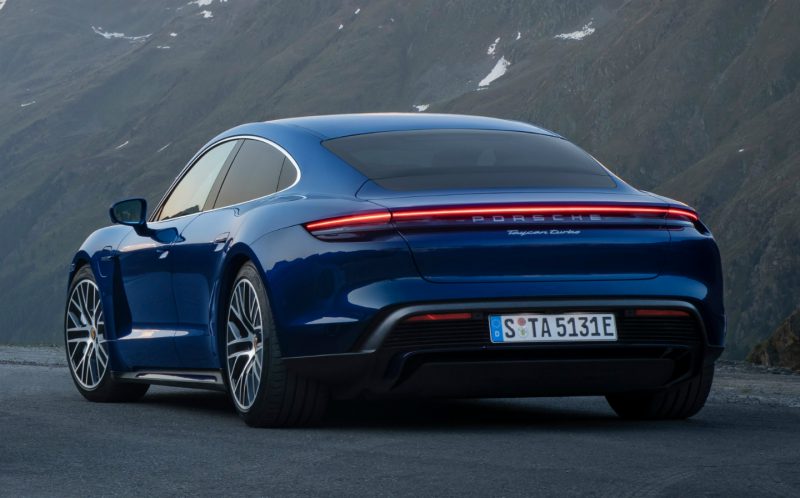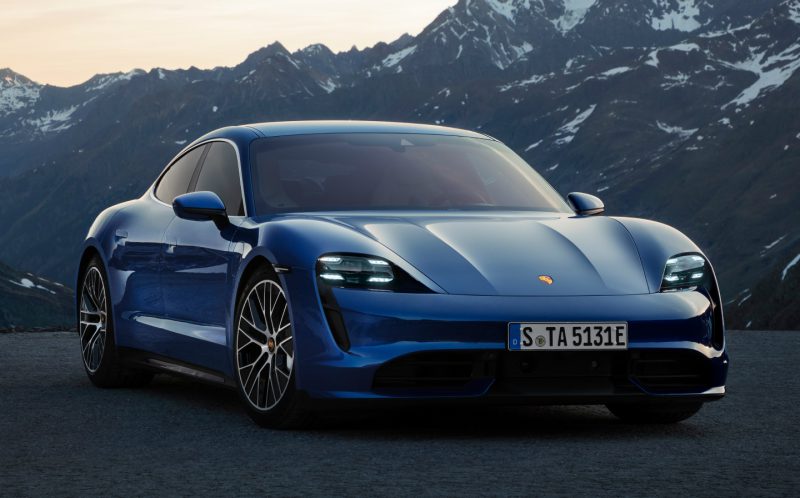
New All-Electric Porsche Taycan
The Taycan is Porsche’s first all-electric car. A car we’re expecting to re-write the rule book on what an EV is capable of. Some people think that electric cars aren’t fun, other than fast acceleration in a straight line. But everyone knows Porsche’s are fun, so lest see what Porsche’s spin is on an all-electric car.
Despite Porsche’s titanic engineering efforts in moving electric car tech forwards – and as I shall attempt to explain, it has – the Taycan is still an electric car. In 2019 that means it still comes with limitations – namely range (280 miles for the Turbo if you drive like a learner), charging time (5 to 80 per cent in 22.5 minutes if you can find one of the 140-odd DC chargers in Europe capable of delivering 270KW) and weight (2.3 tonnes). Stefan Weckbach, the man tasked with delivering the Taycan, predicts that in five to seven years solid-state batteries will come on stream and allow you to have a Taycan with the same power output and range as this one, but 400kg lighter. For now, the Taycan is at the very pointy end of what’s possible.
It’s also not as fast 0-62mph, doesn’t go as far on a charge and costs more than a Tesla Model S P100D. Thank you Teslerati for pointing that out once every 14 seconds since the Taycan was revealed, but numbers aren’t everything. Weckbach insists that while he’s driven every EV on the market, the only benchmark that mattered was making it drive as much like a 911 as possible. Aim for the moon and all that. So, starting from a very blank piece of paper in mid-2014, this is what Porsche has come up with.
Based on a new ‘J1’ platform, it slings a 93.4kWh lithium-ion battery between the two axles, each with a motor attached, four-wheel steering, suspension loosely related to the Panamera and a rear-mounted two-speed gearbox allowing the Taycan to reach it.

